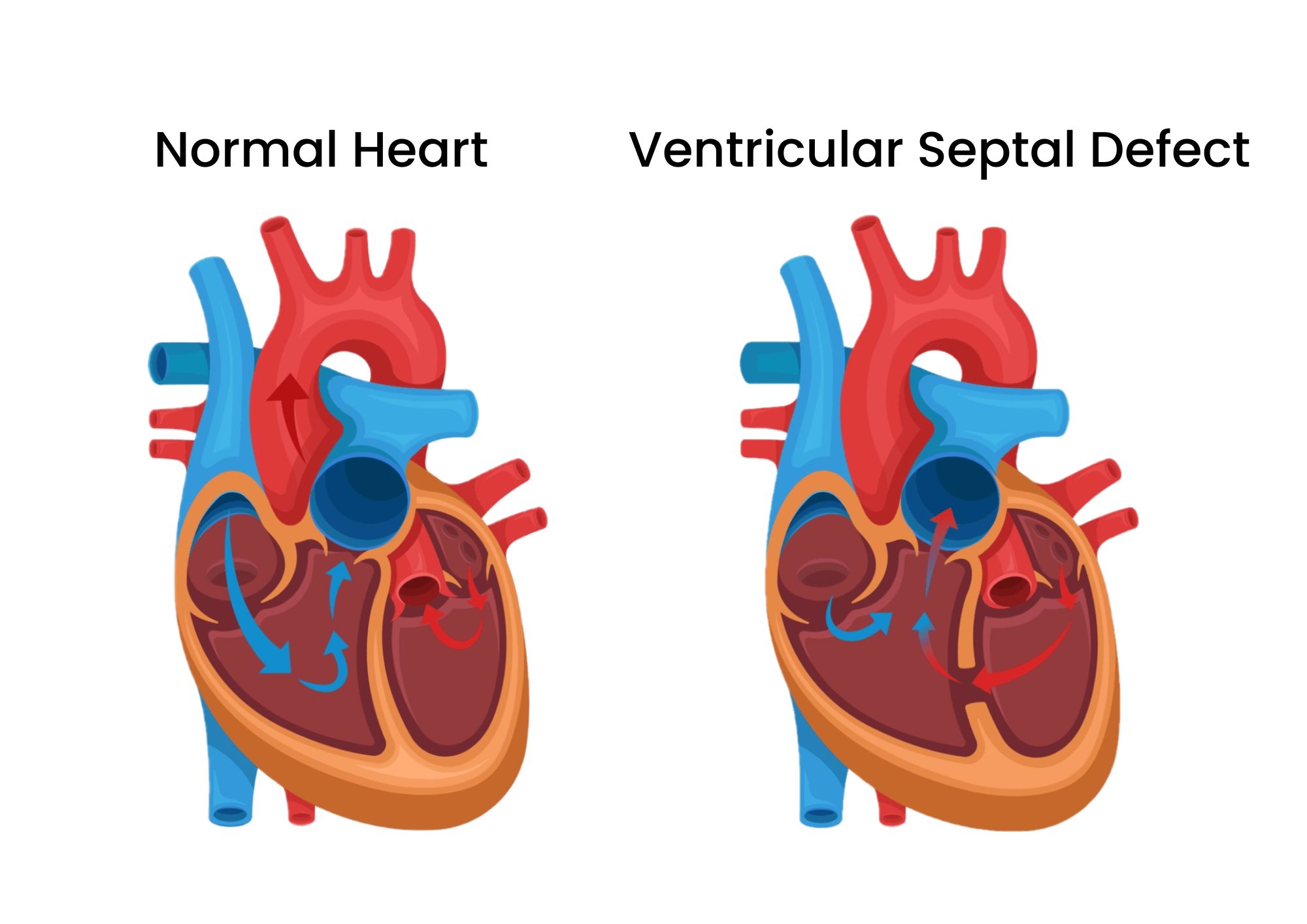Ventricular Septal Defects (VSD) are a type of heart defect that affects thousands of children worldwide. To better understand this condition and its implications, we talked to Dr. Atul Kasliwal, a heart specialist in Jaipur with years of experience in treating children with VSD.
Dr. Atul Kasliwal explained that a VSD is a hole in the wall that separates the two lower chambers of the heart. The heart is a complex organ that consists of four chambers. The upper two chambers are called atria, and the lower two chambers are called ventricles. The ventricles are responsible for pumping blood out of the heart and into the body. In a healthy heart, the ventricular septum separates the left and right ventricles and prevents blood from mixing between them. However, in the case of a VSD, this wall is incomplete, allowing blood to flow from the left ventricle to the right ventricle. This hole can vary in size and location and can cause a range of symptoms, from none at all to severe heart failure. While some VSDs close on their own over time, others may require medical intervention to prevent complications.
Dr. Kasliwal emphasized the importance of early diagnosis and treatment for VSD. “If left untreated, VSD can cause serious complications such as pulmonary hypertension, which can lead to heart failure. “However, with early diagnosis and appropriate treatment, the outlook for children with VSD is generally excellent.”
There are several different types of VSDs, including muscular VSDs and membranous VSDs.
•Muscular VSDs are small holes in the ventricular septum that are caused by incomplete development of the heart muscle.
•Membranous VSDs, on the other hand, are larger holes in the septum that are caused by a failure of the membranous tissue to close during fetal development.
The symptoms of VSD can vary depending on the size and location of the hole. Small VSDs may not cause any symptoms and may even close on their own as the child grows. However, larger VSDs can cause symptoms such as shortness of breath, rapid breathing, poor feeding, and a blue tint to the skin (known as cyanosis) due to inadequate oxygenation of the blood.
Diagnosing VSD typically involves a physical exam and medical history, as well as imaging tests such as an echocardiogram. Dr. Kasliwal stressed the importance of seeking medical attention if parents suspect their child may have a heart problem. “If a child is experiencing symptoms such as rapid breathing, poor feeding, or cyanosis, it’s important to get them evaluated by a doctor as soon as possible,” he said.
Treatment for VSD:
1. Regular Treatment: It depends on the size and location of the hole and the severity of the symptoms. Small VSDs may not require any treatment and may close on their own. However, larger VSDs may require surgery or other interventions to close the hole and prevent complications such as heart failure or pulmonary hypertension.
2. Surgical Treatment: It typically involves open-heart surgery, in which the surgeon closes the hole in the ventricular septum using a patch or other material. In some cases, minimally invasive techniques may be used to close the VSD without the need for open-heart surgery.
In addition to surgical treatment, medications may be used to manage symptoms such as shortness of breath or heart failure. These medications can help improve the heart’s ability to pump blood and reduce the workload on the heart and Dr. Kasliwal stressed the importance of close follow-up after treatment to ensure the child’s heart is functioning properly.
While VSD can be a serious condition, Dr. Atul Kasliwal emphasized that with proper treatment, most children with VSD can go on to live healthy, normal lives. It’s important for parents to be aware of the symptoms of VSD and to seek medical attention if they suspect their child may have a heart problem. Early diagnosis and appropriate treatment can make a big difference in the outcome for these children.
In conclusion, Ventricular septal defects (VSD) can be a complex and challenging heart condition, but with the right care and attention, children with VSD can thrive. If you suspect your child may have a heart problem, don’t hesitate to seek medical attention. Talk to a trusted heart specialist like Dr. Atul Kasliwal in Jaipur to get the answers you need and the care your child deserves.
